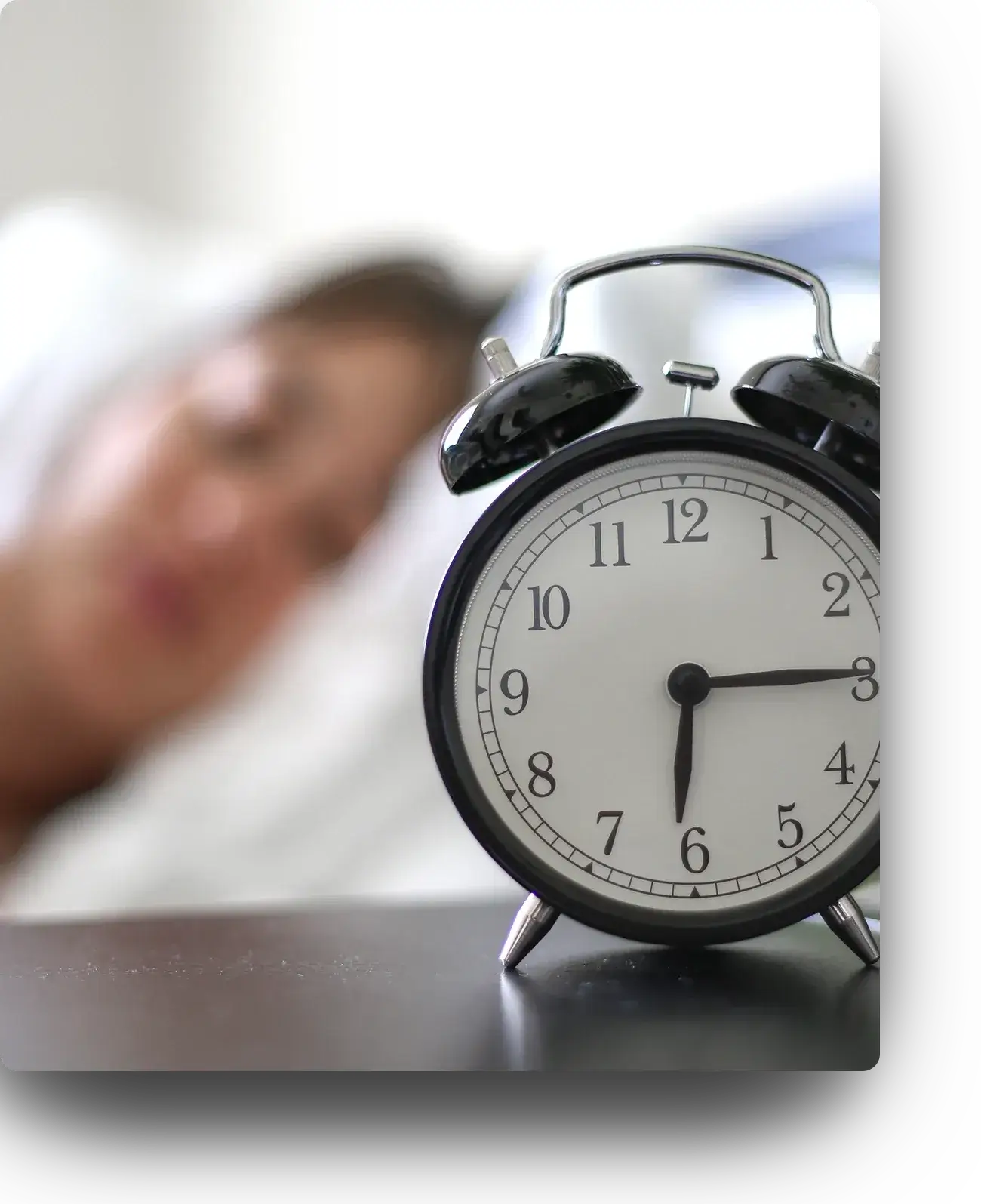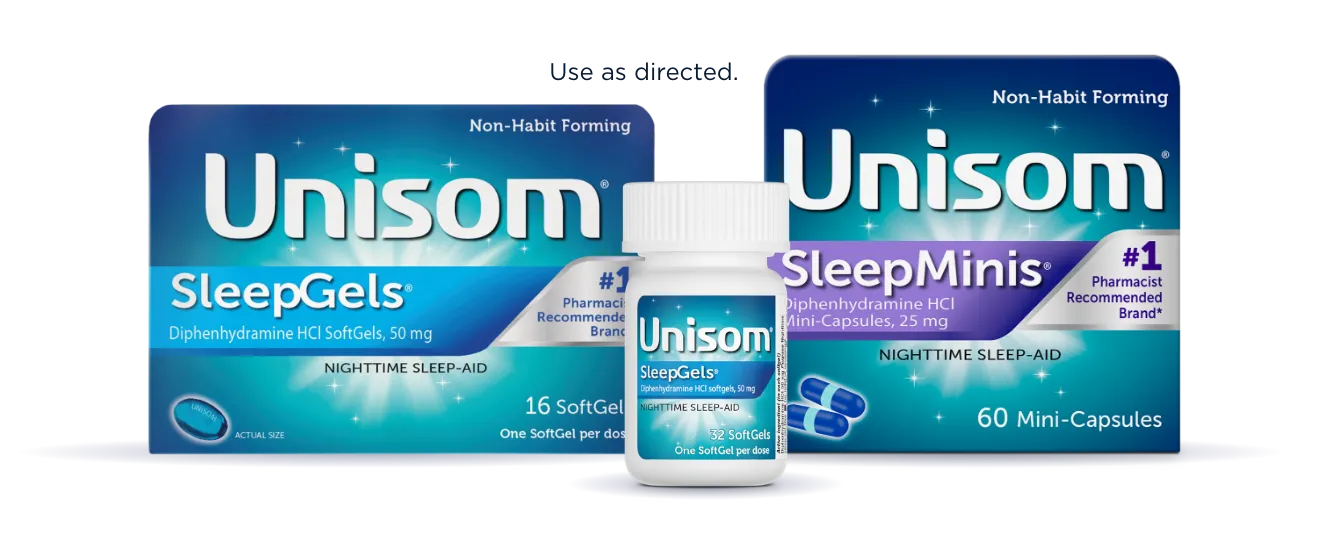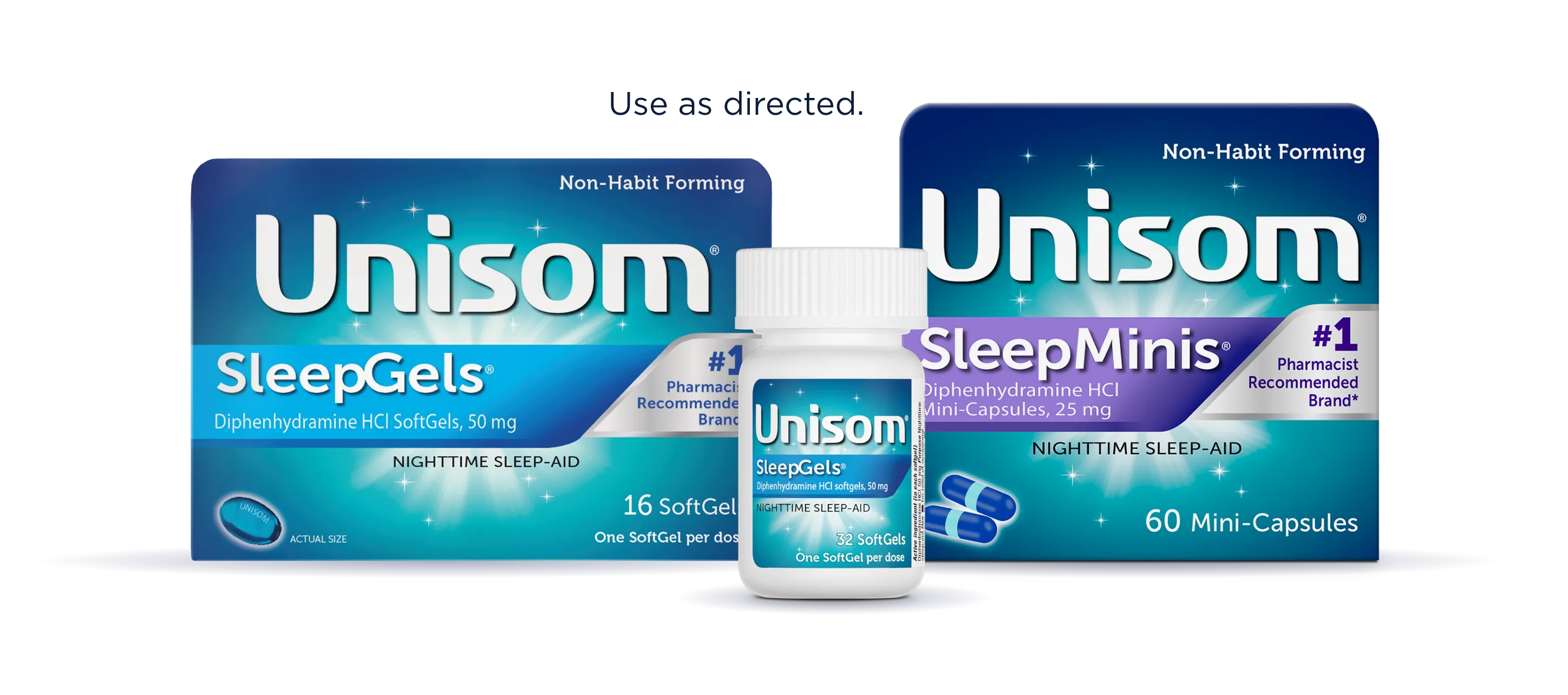If you’re waking up groggy and constantly asking yourself why—it may be time to start being more consistent with your sleep schedule. After all, your sleep can impact so many vital aspects of your health, like your brain, heart, immune system, and even overall longevity—so it’s important to make it a priority.
Here’s another way to think about it: Treat sleep as an investment in your health. And, just like any investment, you need to keep reviewing and optimizing it so that you’re getting the most out of it that you can. Nailing down your ideal sleep schedule is an art and a science, but we’re here to help. Read on to understand the benefits of an ideal sleep schedule and how to find one that works for you.
The Importance of Keeping a Sleep Schedule
An ideal sleep schedule can help keep you healthy by enabling you to fall asleep and wake up more easily. There’s no easy answer to a perfect sleep, but there are ways to improve your sleep, like getting between seven and nine hours of sleep every night.1 Following steps like these, you can begin to ensure that your schedule and sleep hygiene are conducive for restful sleep.
What Is the Ideal Sleep Schedule?
Here’s the thing: Sleep is personal. While all sleep follows similar biological stages, your personal sleep regimen, which includes the best time to wake up and the best time to sleep, is different from anybody else’s. You can pin some of that on genetics.
With that in mind, your best sleep schedule depends on what makes you feel the most refreshed in the morning. This is also based on your own biological clock and circadian rhythm, which is your internal 24-hour cycle of sleep and wakefulness. The sleep-wake cycle is different for everyone and regulates when your body feels like being asleep or not. So, while we can’t simply outline your ideal sleep schedule, we can inform you how to create a routine for optimal sleep health.
What Is a Bad Sleep Schedule?
A bad sleep schedule is any sleep routine (or lack thereof) that doesn’t lead to restorative sleep. Without that crucial rest, you’re missing out on the benefits of sleep across everything from neural development to emotional regulation and the removal of toxins from your body.2
We get it—a good sleep is much easier said than done. Studies reveal that almost half of all Americans feel sleepy three to seven days of the week,3 and more than a third of all adults in the U.S. get less than the recommended seven to nine hours of sleep per night.4 If you’re tired in the middle of the day and aren’t getting the recommended amount of sleep, then you have room to improve your sleep schedule.
What Does an Improved Sleep Schedule Depend On?
Improved sleep starts with an in-depth understanding of it, including the science behind your different sleep stages and how they impact your health. You should also try to uncover the reasons why you might have trouble falling asleep or staying asleep in the middle of the night. When you eliminate or identify those acute (or chronic) underlying sleep issues, you can begin to actively create your ideal sleep schedule and environment.
Building an Ideal Sleep Schedule
To get you started, read through these steps and tips to identify a unique sleep schedule that helps keep you healthy and alert during the day.
Set times and stay consistent
The golden rule behind a restorative sleep depends on consistency. Going to bed early one night and staying up extra late the next won’t get you that rest you’re looking for. Rather than trying to catch up on sleep on the weekends, set a bedtime and wake-up time and stick to it. This will help develop a habit and can actually train your body’s sleep-wake cycle.
Keep reminders
Reminders can help ensure you’re holding yourself accountable for following a healthy sleep schedule. As with creating other habits, it’s easy to forget a few times and find yourself back to square one. To help avoid that, consider setting bedtime alarms—and the same goes for wake-up alarms. Again, try doing this on weekends, too.
Avoid excessive napping
You won’t find us complaining if work starts mandating mid-day siestas, but your sleep schedule might. While the occasional short nap won’t cause drastic changes, those with lingering sleep issues may find it harder to fall asleep at night. That’s because naps can potentially interfere with your sleep-wake cycle. So, if you’re currently training yourself to follow an ideal sleep schedule, you’ll likely want to hold off on the naps until you’re more consistent.
Create a restful sleep environment
A bedroom that has too many disruptions can keep you from enjoying a precious slumber. Common distractions could be a television (for late-night channel flipping), phones charged by the bed that can be easily accessed, and other things—such as uncomfortable temperatures or an inadequate mattress. Instead, focus your bedroom on sleeping and other intimate moments only. That means you should avoid looking at screens, especially because they give off blue light, a particular wavelength that can actually hinder the ability to fall asleep by suppressing melatonin in your body. Keep sleep on the brain in your bedroom by making it your snoozing sanctuary.
Stay away from stimulants close to bedtime
Sorry, coffee lovers. It turns out that caffeine can strongly impact your sleep quality in a negative way. Studies have found that caffeine ingested as long as six hours before bedtime can still disrupt sleep.5 Another stimulant is exercise. Research suggests that the effect of exercise on sleep is largely based on personal genetics, but evidence also indicates that you may want to stay away from exercising in the evening if you’re an early riser.6 Pay attention to how exercise affects your sleep so that you can best factor it into your wake/sleep schedule.
Keep a sleep journal
A sleep journal, or diary, can be just the right tool to help you nail down your schedule. You can use it to record the times you’re going to bed vs. waking up so you can narrow down your ideal sleep formula. Tracking that information can also help you identify any sleep issues. Consider adding this tool to your routines to help figure out the best sleep schedule.
Rest Assured
Sometimes, it’s nice to know that a bit of extra support is available when you need it. That’s why Unisom® is here for you, as the #1 pharmacist- and doctor-recommended OTC sleep-aid brand. You can count on us to help you fall asleep, stay asleep longer, and wake up feeling refreshed,† with a range of options that include the below products.
Unisom® SleepGels® contain the histamine blocker sleep-aid diphenhydramine HCI. Blocking histamine production can help you fall asleep faster and stay asleep.
Unisom® SleepTabs® contain doxylamine succinate, which is a clinical-strength histamine blocker sleep-aid that works in a similar fashion to diphenhydramine. Unisom® SleepTabs® can help you fall asleep 33% faster and get a full night's sleep.
Find the Unisom product that’s right for you and download the Unisom Sleep Diary.
|
† These statements have not been evaluated by the Food and Drug Administration. This product is not intended to diagnose, treat, cure or prevent any disease. |
This article is not a substitute for medical advice. Unisom is only intended to help with occasional sleeplessness. If you are suffering from ongoing sleep concerns, seek the help of a medical professional.
Professional References
1. Hirshkowitz, Max, et al. “National Sleep Foundation’s Sleep Time Duration Recommendations: Methodology and Results Summary.” NCBI, National Center for Biotechnology Information, 1 Mar. 2015.
2. Mukherjee, Sutapa, et al. “An Official American Thoracic Society Statement: The Importance of Healthy Sleep. Recommendations and Future Priorities.” NCBI, National Center of Biotechnology Information, 15 June 2015.
3. Langer Research Associates. “Americans Feel Sleepy 3 Days a Week, With Impacts on Activities, Mood and Acuity.” National Sleep Foundation, National Sleep Foundation, 2020.
4. Centers for Disease Control and Prevention. “CDC - Data and Statistics - Sleep and Sleep Disorders.” CDC, Centers for Disease Control and Prevention.
5. Drake, Christopher, et al. “Caffeine Effects on Sleep Taken 0, 3, or 6 Hours before Going to Bed.” NCBI, National 6. Centers for Biotechnology Information, 15 Nov. 2013.
Pacheco, Danielle. “What’s the Best Time of Day to Exercise for Sleep?” Sleep Foundation, 24 June 2021.
†These statements have not been evaluated by the Food and Drug Administration. This product is not intended to diagnose, treat, cure or prevent any disease.


